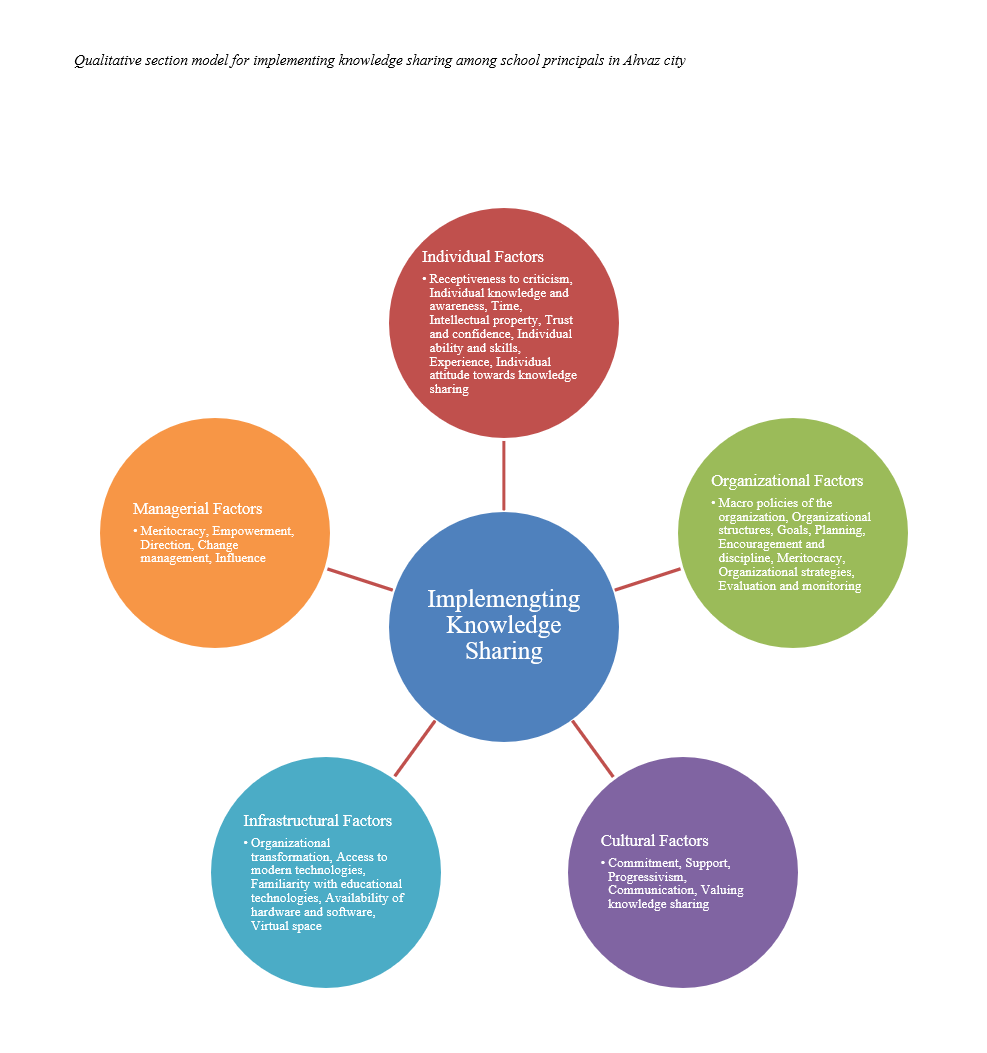Providing a Model for Implementing Knowledge Sharing in Educational Organizations (Case Study: School Principals of Ahvaz City)
Keywords:
Knowledge, Knowledge Sharing, Knowledge Management, School PrincipalsAbstract
Objective: The primary objective of this research is to develop a model for implementing knowledge sharing in educational organizations, specifically focusing on school principals in Ahvaz city.
Methodology: This study employs a qualitative research approach. The participants included 15 knowledgeable and informed individuals, such as employees from the Ministry of Education, faculty members of educational sciences and management, staff from the Education and Research Department of Khuzestan, and experienced school principals and researchers. Data was collected through in-depth interviews until theoretical saturation was achieved. The data was then analyzed using qualitative content analysis with open, axial, and selective coding.
Findings: The research identified five main factors influencing knowledge sharing: individual, organizational, cultural, infrastructural, and managerial. Each main factor includes several sub-factors, with individual factors comprising the most significant influence. The study found that attitudes, interests, professional abilities, and personal relationships significantly impact knowledge sharing. It also highlighted the importance of intellectual property, trust, and confidence in fostering a conducive environment for knowledge sharing.
Conclusion: Knowledge sharing in educational organizations, particularly schools, is crucial for improving performance and educational quality. The developed model emphasizes the importance of individual factors, such as receptiveness to criticism, knowledge and awareness, time, intellectual property, trust, abilities, experience, and attitudes towards knowledge sharing. The findings suggest that a supportive organizational culture and infrastructure, alongside effective management, are essential for successful knowledge sharing among school principals.
Downloads

Downloads
Additional Files
Published
Submitted
Revised
Accepted
Issue
Section
License
Copyright (c) 2024 Omid Ahmadi Babadi (Author); Yadollah Mehralizadeh (Corresponding Author); Maria Nasiri, Mohammad Hosseinpour (Author)

This work is licensed under a Creative Commons Attribution-NonCommercial 4.0 International License.















